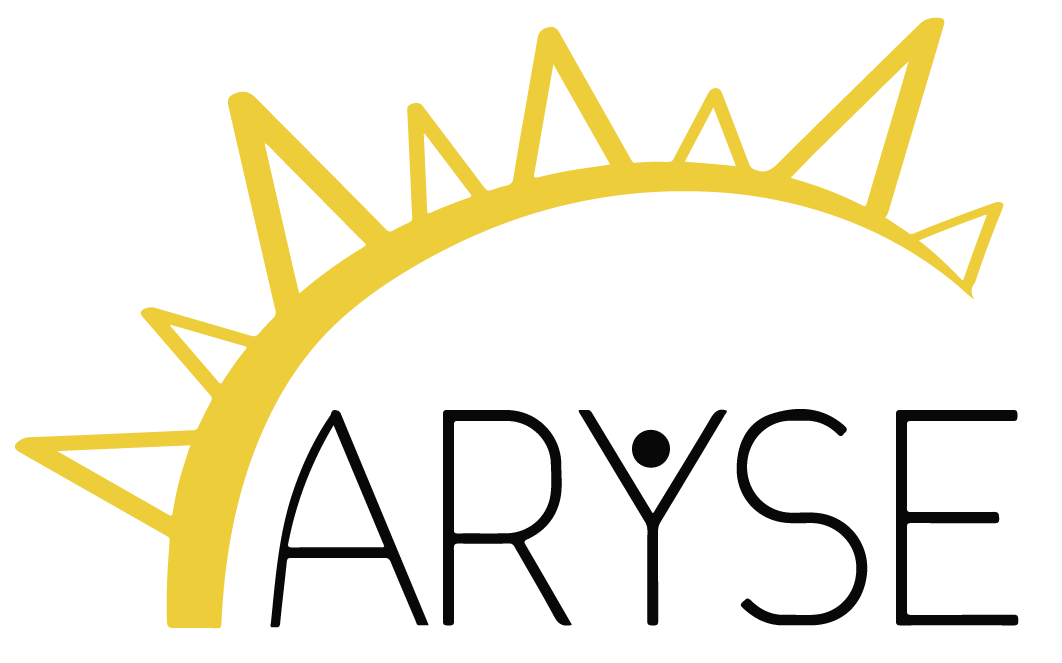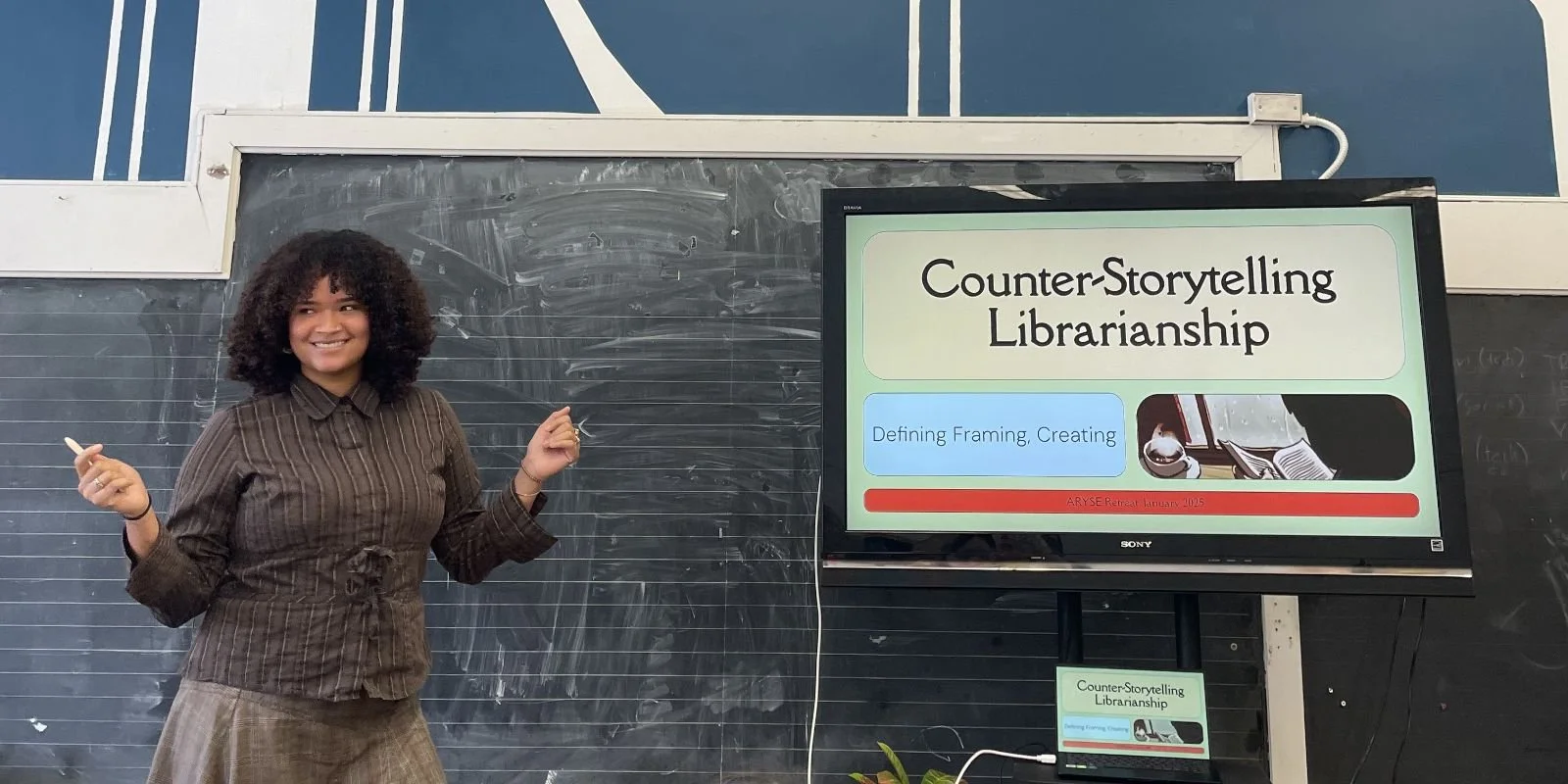Blog Issue 2: Many Questions and So Few Answers: Imagination, Fantasy, and Youth
By Erica Hughes (she/her), Girls Art and Maker Group Program Manager
"These questions were less about the answers for me and more about understanding that there are questions that I can ask about the parts of the world I’ve always been curious about."
Though I’ve worn many hats at ARYSE, currently, you all may know me as Girls Art and Maker Group Program Manager and the resident ARYSE librarian. I’ve been working with everyone at ARYSE these past few months to bring about our Counter-Storytelling Librarianship (CSL) project. Through all this we are focused on how to create spaces of questioning and accountability.
When I think about the ways to encourage people to question or take deeper looks at what we believe is normal, I often think about the paths that led me to do the same. As a kid, preteen, teen, I was always asking questions, but mainly ones directed at myself. Why do I act like this? Should I have said something differently? Is there something wrong with me? Constantly unsure, I wanted answers on what is the right way and the right behavior. One of the only ways I was able to free myself from thinking in this circle was to read. But I didn’t want anything relatable in my fiction, I wanted the most confusing, whimsical, romantic, unrealistic and complicated fantasy books I could find. Within these books the expectations were so different and so otherworldly that I could see what life might look like without the limits of my day to day.
One of these books, Gool, was the second book in The Salt Trilogy. If the title tells you anything it was a sweeping fantasy about a creature called Gool. I recently was looking through old photos of me and found one where I’m leaving a family event with Gool tucked under my arm. I don’t remember many details from that day, but I remember that everyone thought it was funny that I brought a book to a BBQ. I also remember that I was fascinated by this book, it was the most extra fantasy book I had read to that point. As much as it was about an evil creature, it also was about class, exploitation and resistance. At the time I read this I was still focused on questions meant to judge myself, but I was also building the foundation to become critical of what we have been taught to believe are individual problems instead of the design of a system.
Erica at a family BBQ with the book, Gool, under her arm.
As I got older, the questions then became directed at history, governments and law. Why is school set up this way? Why doesn’t my neighborhood have access to this? How much do I need to work to support myself? Why? These questions were less about the answers for me and more about understanding that there are questions that I can ask about the parts of the world I’ve always been curious about.
In college I followed my curiosity about people and our behaviors and chose to study psychology. Throughout my time in the field, I often asked about how we affect each other, thinking of how people change as a group or community. I was always thinking of a question to ask, someone to ask it to and what to do if I found my “answer”.
Entering my Librarianship degree, I was prepared to become the person that people brought the questions to. Someone that could reference texts and refer people to different sites and guide people through their own curiosities. Exciting as it was, I also learned fairly soon that there is a big disconnect between libraries and the communities that they are in. I often think back to one discussion board in my class that asked us to recount one of our earliest memories of reading with our parents. I couldn’t think of one, I don’t have memories of reading with my parents. I have memories of all the ways they tried to have fun with us, but not of reading. And being myself, the questions started coming, and I found the literature, the people and the actions that helped me remain critical in the program. But this experience was the start of what Counter-Storytelling Librarianship is now.
Erica leading a session on CSL during our staff retreat this past January.
I realized that certain people’s imaginations are thought to be superior to others. Their parents might have had the time, energy and money to sit down and show the magic of reading but that is not available to all, and libraries must be real about their place in this reality. As freeing as books can be, they also have different uses for communities. Some people use their imagination to think of how it might feel to be oppressed while others use theirs to imagine the ways to free their people. For myself as a teen, reading fantasy books prepared me to become someone that would not settle for someone else's messed up reality. Over time, I kept wondering, asking, imagining and daydreaming.
Today, as CSL grows and takes shape in our work, I’m still asking questions, now to the young people who are being told who they are, who they will become and why they act a certain way. I’m asking that they find their own curiosities and follow them. We can’t keep living in the harmful dream and imagination of someone else. Working with youth, understanding their questions, giving them the space to create new worlds together is a strategy in the effort to change this. At the end of the day, I’m still the teen that wanted to change so much about my reality, so much so that I took a book called Gool to my family BBQ. This means for me, and for you reading, we still have dreams from our younger years that we haven’t realized yet, we have worlds we need to create, and we have questions we need to ask.


